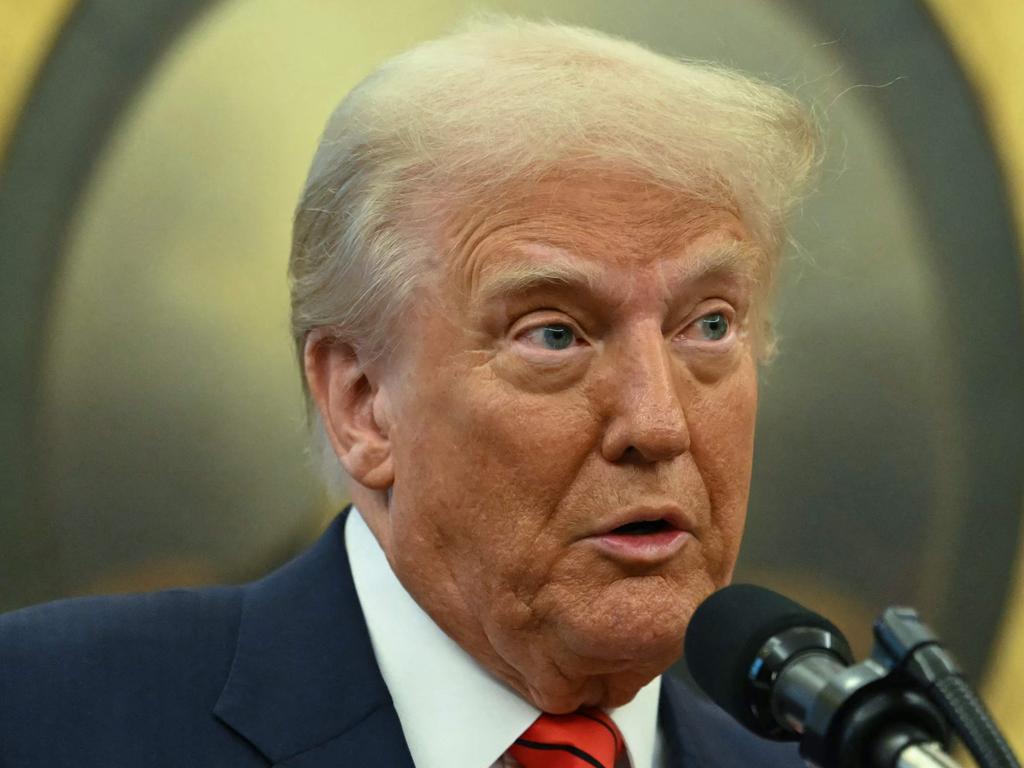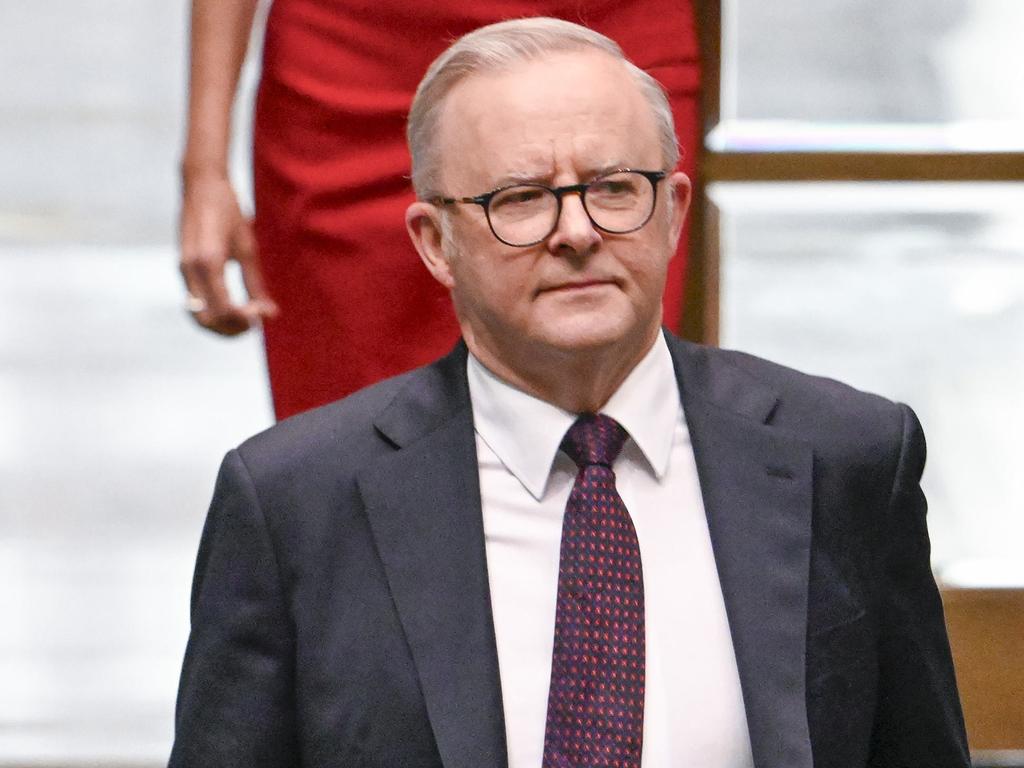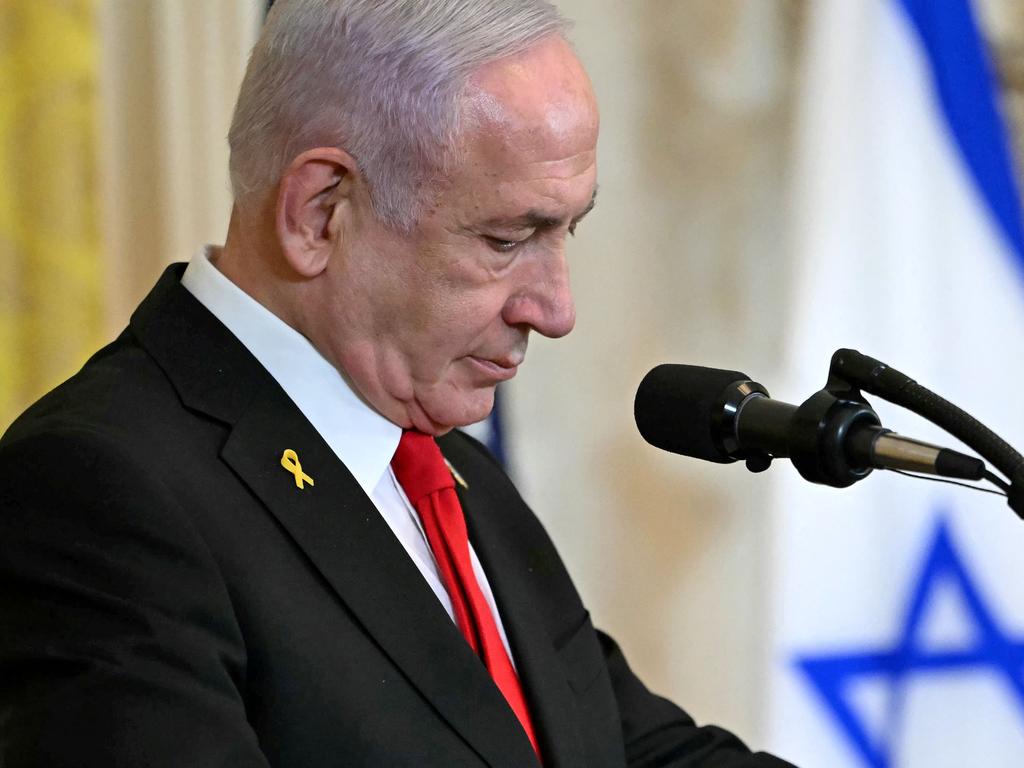White House ducks as Donald Trump’s Gaza gamble shot down
The White House has rushed to modify the most contentious parts of Donald Trump’s plan for Gaza in the face of sweeping criticism from the Arab world, America’s allies and even the President’s own Republican Party.

The White House has rushed to modify the most contentious parts of Donald Trump’s plan for Gaza in the face of sweeping criticism from the Arab world, America’s allies and even the President’s own Republican Party.
Mr Trump’s audacious plan to take ownership of Gaza, empty it of its population and rebuild it into a “Riviera of the Middle East”, has stunned the world, including America’s Western allies, none of which expressed support for the proposal.
Arab nations, including Egypt, Jordan, Saudi Arabia and the UAE, condemned the plan to move some two million Palestinians out of Gaza, while European nations, including France, Britain and Germany, as well as the UN, also opposed any displacement of Gazans.
The criticism, from both America’s enemies and friends, forced the Trump administration into damage control as it walked back several key elements of Mr Trump’s plan.
Mr Trump’s Secretary of State Marco Rubio said any transfer of Gazans would only be temporary while Gaza was being rebuilt, contradicting the President’s statements a day earlier that Palestinians would be relocated in other countries “permanently”.
White House press secretary Karoline Leavitt said “the President has made it clear that they need to be temporarily relocated out of Gaza”, which she said was currently “an uninhabitable place for human beings”.
Mr Trump said on Tuesday: “If we can get a beautiful area to resettle people, permanently, in nice homes where they can be happy and not be shot and not be killed and not be knifed to death like what’s happening in Gaza.”
Ms Leavitt also said that the US would not fund Gaza’s reconstruction, even though Mr Trump had said America would take “long-term” ownership of Gaza and rebuild it into a “Riviera”.
She also clarified that there were no current plans to send US troops to Gaza, despite the President leaving open that possibility when announcing the deal.
US involvement “does not mean boots on the ground” or that “American taxpayers will be funding this effort”, Ms Leavitt said.
Seeking to counter criticism that the US plan to own Gaza was a breach of sovereignty, Mr Rubio said it was only being proposed to help the people of Gaza.
He said the plan “was not meant as hostile”, saying it was a “generous move – the offer to rebuild and to be in charge of the rebuilding”.
Jordan’s King Abdullah, who will meet Mr Trump at the White House next week, said he opposed any moves to annex land or displace Palestinians. Egypt, which, along with Jordan, will be pressured to accept Palestinians under Mr Trump’s plan, said Gaza should be rebuilt without any Palestinians leaving the enclave.
Saudi Arabia expressed its “unequivocal rejection” of any attempt to displace the people of Gaza and said it would not consider normalising diplomatic relations with Israel – a key aim of the Trump administration – in the absence of an independent Palestinian state. UN Secretary-General Antonio Guterres criticised Mr Trump’s proposal, saying: “In the search for solutions, we must not make the problem worse.
“It is vital to stay true to the bedrock of international law. It is essential to avoid any form of ‘ethnic cleansing’.” The US was accused by UN critics of supporting ethnic cleansing of Gaza after Mr Trump declined to clarify whether the US would seek to use force to move people out of Gaza.
European allies also opposed Mr Trump’s plan, while mostly avoiding direct criticism of the President. The French foreign ministry opposed any forced displacement of Gazans, saying it would violate international law, while Germany said a two-state solution remained the best path to permanent peace. British Prime Minister Keir Starmer said Gazans “must be allowed home, they must be allowed to rebuild and we should be with them in that rebuild on the way to a two-state solution.”
Anthony Albanese avoided commenting directly on Mr Trump’s proposal while stating his support for a two-state solution. The fear that the US President’s Gaza plan might embroil America in another deadly and expensive Middle East conflict saw several of his Republican allies express concern. Senator Lindsey Graham, a staunch Trump ally, said the Gaza proposal was “problematic”.
“The idea of Americans going in on the ground in Gaza is a non-starter for every senator,” he said.
“So I would suggest we go back to what we’ve been trying to do, which is destroy Hamas and find a way for the Arab world to take over Gaza and the West Bank, in a fashion that would lead to a Palestinian state that Israel can live with.” Republican senator Josh Hawley said that he did not “think it’s the best use of United States resources to spend a bunch of money in Gaza” when it should “be spent in the United States first”.
However, Mr Trump’s proposal was welcomed by key far-right politicians in Israel, with Itamar Ben Gvir tweeting “Donald, this looks like the beginning of a beautiful friendship.”








To join the conversation, please log in. Don't have an account? Register
Join the conversation, you are commenting as Logout